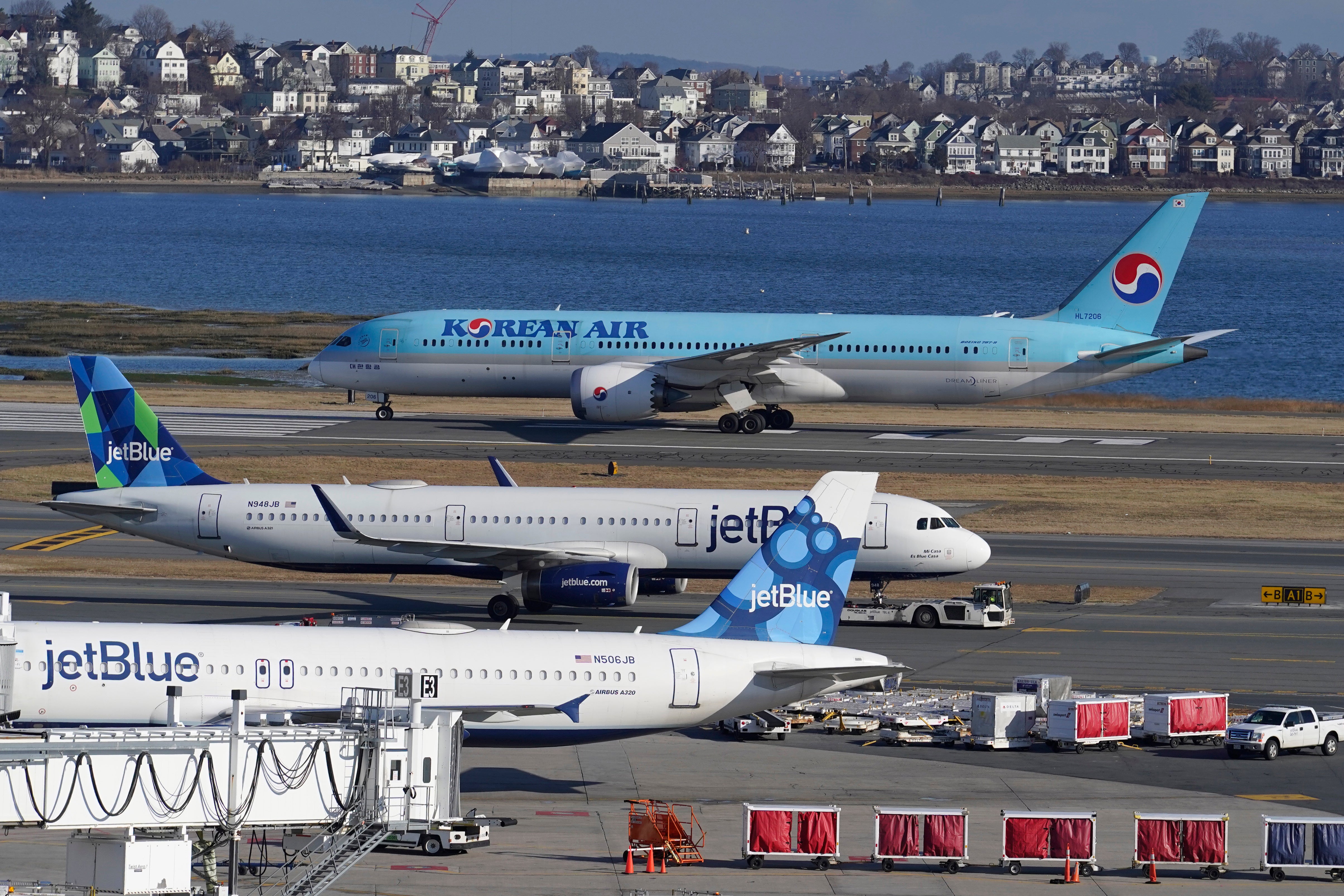The FAA is considering mandating technology to warn pilots before they land on the wrong runway
The Federal Aviation Administration is considering requiring that all planes be equipped with technology designed to prevent close calls around airports

Your support helps us to tell the story
From reproductive rights to climate change to Big Tech, The Independent is on the ground when the story is developing. Whether it's investigating the financials of Elon Musk's pro-Trump PAC or producing our latest documentary, 'The A Word', which shines a light on the American women fighting for reproductive rights, we know how important it is to parse out the facts from the messaging.
At such a critical moment in US history, we need reporters on the ground. Your donation allows us to keep sending journalists to speak to both sides of the story.
The Independent is trusted by Americans across the entire political spectrum. And unlike many other quality news outlets, we choose not to lock Americans out of our reporting and analysis with paywalls. We believe quality journalism should be available to everyone, paid for by those who can afford it.
Your support makes all the difference.The Federal Aviation Administration indicated Friday that it is moving toward requiring that planes be equipped with technology designed to prevent close calls around airports.
Many new airline jets are equipped with some of this technology, but older ones are not, and neither are many private planes.
The FAA asked an internal advisory panel to make recommendations on how to require systems that would alert pilots if they are lined up to land on the wrong runway or a taxiway, or when the runway they have chosen is too short.
The FAA said the move is part of its effort to eliminate “serious close calls.” The National Transportation Safety Board has started investigations into seven such incidents since January.
Planes typically have GPS-based systems that warn pilots if they are in danger of hitting the ground or an obstacle. Providers such as Honeywell augment those systems with more information during taxi, takeoffs and landings to reduce the risk of close calls or “runway incursions.”
On most airline planes, those systems also alert pilots when they are lined up to land on the wrong runway, but the technology is not currently required, said Douglas Moss, a retired airline pilot who teaches aviation at the University of Southern California.
Newer planes also have flight-management systems that include a wrong-runway alert, Moss said.
Chris Manno, an airline pilot who blogs about aviation, said limits in GPS precision can reduce the ability of the technology to warn pilots about landing on the wrong runway — especially where parallel runways are close together, as they are at San Francisco International Airport. An Air Canada jet preparing to land there in 2017 nearly crashed into other planes after mistaking a taxiway for the runway.
But being told that the runway is too short or that pilots are landing at the wrong airport “should be feasible and would be a valuable warning,” Manno said. He said the FAA move “sounds like a very good idea.”
Preliminary reports about close calls this year point to pilot error in some cases and air controller mistakes in others. The NTSB said Thursday that a blocked radio transmission caused a close call in June at San Diego International Airport between Southwest and SkyWest planes.
“When it comes to that most serious type (of close calls), we have seen a noticeable increase in the first part of this year,” Transportation Secretary Pete Buttigieg told The Associated Press last week. “We’re at about 15 so far this year, and typically you would expect that number in about a (whole) calendar year.”
Buttigieg pointed to the FAA’s “safety summit” of industry officials in March and more spending on airport infrastructure as examples of steps the agency is taking to reduce close calls.
Industry and government officials, including the acting administrator of the FAA who convened the safety summit, have often said that the lack of a fatal crash involving a U.S. airline since 2009 proves that safety is getting better. Buttigieg said those comments don’t indicate complacency.
“When you have a year with zero fatal crashes, you have to concentrate your efforts on keeping it that way by turning to anything that could have led to a problem if it hadn’t been caught,” he said. “We’re moving toward anything that could even come close to an incident.”
The FAA’s associate administrator for safety, David Boulter, said in a letter Friday to the advisory panel on rulemaking that alerting technologies “are only part of the solution” to avoiding close calls. He said more consideration needs to be given to “human factors.”